
Burnout Management Coach Explains Why The 8-Hour Workday / 40-Hour Workweek Is Outdated
InterviewIt’s crazy to think that we spend over a third of our entire lives sleeping. What’s even crazier is we spend another third working or studying or partaking in any worldly commitments we may have.
Well, the obligatory 9-to-5 isn’t necessarily the smartest approach to work, as it turns out. TikToker and Burnout Management Coach Emily Ballesteros, with whom Bored Panda got in touch, has recently shared her professional opinion on why the 8-hour workday is tragically outdated and it’s high time companies adopted a more appropriate work schedule.
Turns out, the ‘9-to-5 ‘ concept isn’t the smartest approach when it comes to work as explained by Burnout Management Coach Emily Ballesteros
@emilybruthReply to @iamjoegioia I’m glad you brung it up cuz I’ve been dying to talk about it for a f*ckin hot minute😅 ##burnout ##cc ##40hourweek ##fyp ##workload♬ original sound – Emily Ballesteros
Meet Emily Ballesteros, a Burnout Management Coach who shares videos on a variety of topics related to burnout, energy and time management, work and mental health, and advice on how to deal with work-related issues.
Recently, she has come out with a video addressing the 8-hour workday / 40-hour work week and its underlying issues. The video starts off by giving some context about the 8-hour workday concept—8 hours of work, 8 hours of rest, and 8 hours of sleep, rinse and repeat, which was formed over 100 years ago. Unfortunately, it was originally all for one specific industry—manufacturing.
In her now viral TikTok video, Emily explains why the 8-hour workday doesn’t make sense in many industries
Image credits: emilybruth
Ballesteros explains that though it might be a solution to that particular business vertical, it’s by no means universal. Many industries are actually project-based, meaning that people have to keep themselves busy most of the time. And in turn, this leads to problems of reduced productivity, loss of motivation, and possible burnout, among others.
Besides this, the 8-hour workday was created in a different historical context—wives used to stay at home and tend to the household, there was no hour-long super-commuting, and technology was drastically different, making it impossible for many to work from home.
“This framework was created by one man, in one industry, 100 years ago and we have not improved it?” Ballesteros concluded the video with her last point that usually such systems are designed and checked by more than one individual, yet here we are.
You see, the 8-hour workday concept was created for a particular industry—manufacturing
Image credits: emilybruth
So, why is it that many companies still dictate the 8-hour workday? Ballesteros explains: “I believe many companies still use the 8-hour model because they have become ‘standard business hours’ and it is the path of least resistance. While many companies are open to change, they don’t always have the capacity to do the work it would take to change their business model.”
But, as hard it may seem for companies to switch to a shorter workday, it doesn’t have to be that way. Depending on the industry, of course. Ballesteros explained that such a move could be done in smaller steps and would in any case be worth it because it would push them to reduce the amount of pointless meetings, certain admin tasks, and back-and-forths that could be automated.
“Many organizations already have ‘summer hours’ where they are released early on Fridays. I think you could introduce the change in a similar way. Companies could try it on a trial basis, track the data, adjust accordingly, get feedback, try again, and then see what the data and employees say,” elaborated Ballesteros.
However, this doesn’t translate well when tackling a ‘project-based’ job where people don’t need 8 hours
Image credits: emilybruth
Her video quickly went viral on TikTok, garnering over 1.6 million views with over 257,000 likes and over 3,000 comments, and started making headlines among internet news media outlets.
Since this, Ballesteros released another video with possible solutions to the 8-hour workday problem. Her first suggestion (of two) is paying for the completion of tasks instead of per hour, adjusted accordingly by each industry. So, no matter how long a task will take, as long as it’s done by a specific deadline, that’s all that matters.
The other suggestion is shifting to a 6-hour workday. According to her and the studies she references, productivity stayed the same or even increased because the new deadlines created urgency, and urgency created focus, allowing the same tasks to be performed over a shorter timespan.
Besides that, the 8-hour work day is outdated because it was created within a particular historical context
Image credits: emilybruth
Now, a 6-hour workday or 4-day workweek sounds great, but it does come with its drawbacks. For one, business doesn’t stop when the employees close the door at the end of the day and some industries rely on having people work for the full five or even seven days. So, companies might have to hire more people, making it more expensive for the employer.
“Possible drawbacks are the inability to condense working tasks to the new timeframe. Hours would need to be adjusted based on industry and demand,” explained Ballesteros. “This means that tension could build up between different departments in a company. Maybe one department can adjust their workload to fit in 6 hours, but another can’t, and they know the other is getting paid the same amount to work less. It would need to be tested in controlled groups in a variety of industries before being introduced to large organizations.”
To top it all off, she pointed out that over the 100 years has passed and nobody ever changed anything
Image credits: emilybruth
Besides this, the shorter work hours and tighter deadlines may lead to people experiencing more stress leading to less work satisfaction, possibly loss of motivation, and whatnot. And don’t forget all of the people who enjoy their work and don’t mind staying the eight mandatory hours (or even more).
This also causes problems on a greater scale: shorter work days in countries that have social security systems that are based on 8-hour workdays would mean that a person would likely not meet the necessary minimum limit of being able to retire at a later time in their life, or their pension would be less than it would have been under an 8-hour workday.
The video has since then gone viral, garnering over 1.6 million views and 250k likes
Image credits: emilybruth
Lastly, we’ve asked Ballesteros if she has any tips on where to start when it comes to switching to a shorter workweek. She had this to say: “Automate everything humanly possible. From having an FAQ email signature to creating templates for common problems to ordering pre-made dinners. Every time you say “every time I have to…” is a place for automation. Second, live by design rather than default. Think critically about what is truly essential to you personally and professionally before agreeing to fit it into your schedule.”
Ballesteros also made a follow-up video providing possible solutions to the 8-hour work day
@emilybruthReply to @jacquelinelinnea This just skims the surface but I hope it provides some more info! ##burnout ##40hourworkweek ##workload ##timemanagement♬ original sound – Emily Ballesteros
What are your thoughts on this? Is your job possible under a daily 6-hour schedule, and would you switch to it if given the opportunity? Let us know in the comment section below!
Here’s how people online reacted to this video
49Kviews
Share on FacebookHenry Ford did not invent the 8 hour day! The idea and the slogan goes back to the 1810s and Welsh social reformer Robert Owen. It was one of the main demands of socialists during almost all of the 1800s. Ford wasn't even the first to implement it in his factories. An Australian company was the first to give its workers an 8 hour day in 1856, six years before Ford was even born!
Thanks for the heads up! We've updated the article with this information and we've also reached out to Ballesteros, still awaiting a response, but we'll point this out to her.
Load More Replies...8 hour shift was a demand of workers, unions and socialists to REDUCE the work day. It has nothing to do with henry Ford. Still, we should think about reducing the working hours considering the tecnology we have today. It doesn't make sense.
Technology has been implemented to allow us to do more in the same amount of time - it was never intended (by companies) to reduce the pressure on employees or allow for the same amount of work in less work time.
Load More Replies...What the heck is a "Burnout Management Coach?" What kind of educational requirements are there to do that job?
BBM (Bachelor's in burnout management) duhh •~
Load More Replies...Henry Ford did not invent the 8 hour day! The idea and the slogan goes back to the 1810s and Welsh social reformer Robert Owen. It was one of the main demands of socialists during almost all of the 1800s. Ford wasn't even the first to implement it in his factories. An Australian company was the first to give its workers an 8 hour day in 1856, six years before Ford was even born!
Thanks for the heads up! We've updated the article with this information and we've also reached out to Ballesteros, still awaiting a response, but we'll point this out to her.
Load More Replies...8 hour shift was a demand of workers, unions and socialists to REDUCE the work day. It has nothing to do with henry Ford. Still, we should think about reducing the working hours considering the tecnology we have today. It doesn't make sense.
Technology has been implemented to allow us to do more in the same amount of time - it was never intended (by companies) to reduce the pressure on employees or allow for the same amount of work in less work time.
Load More Replies...What the heck is a "Burnout Management Coach?" What kind of educational requirements are there to do that job?
BBM (Bachelor's in burnout management) duhh •~
Load More Replies...
 Dark Mode
Dark Mode 

 No fees, cancel anytime
No fees, cancel anytime 


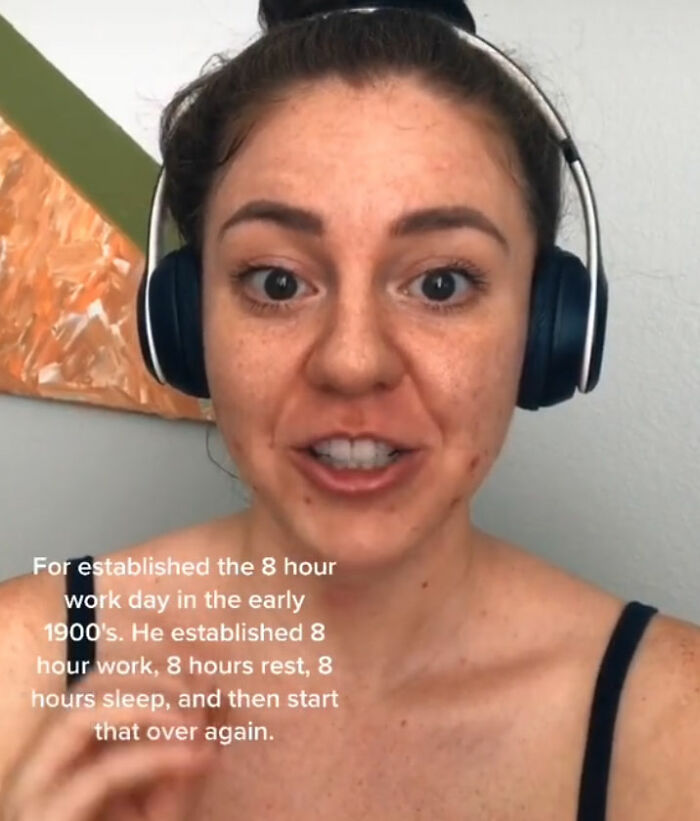
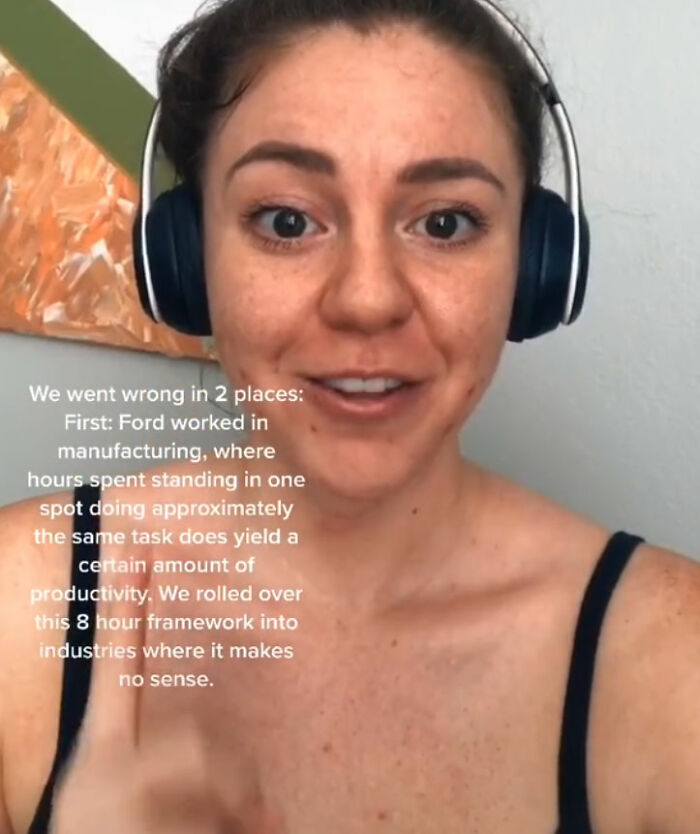
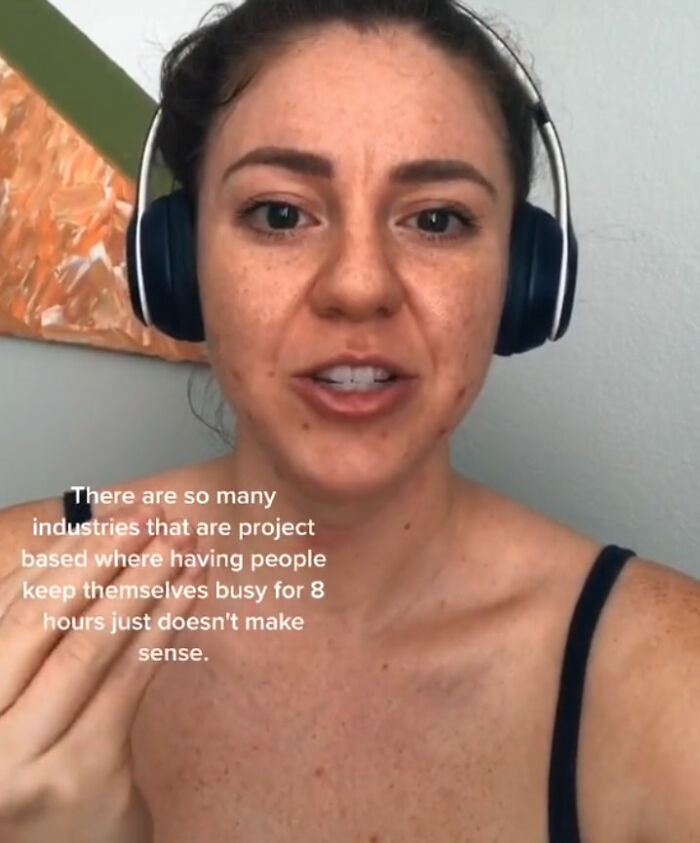
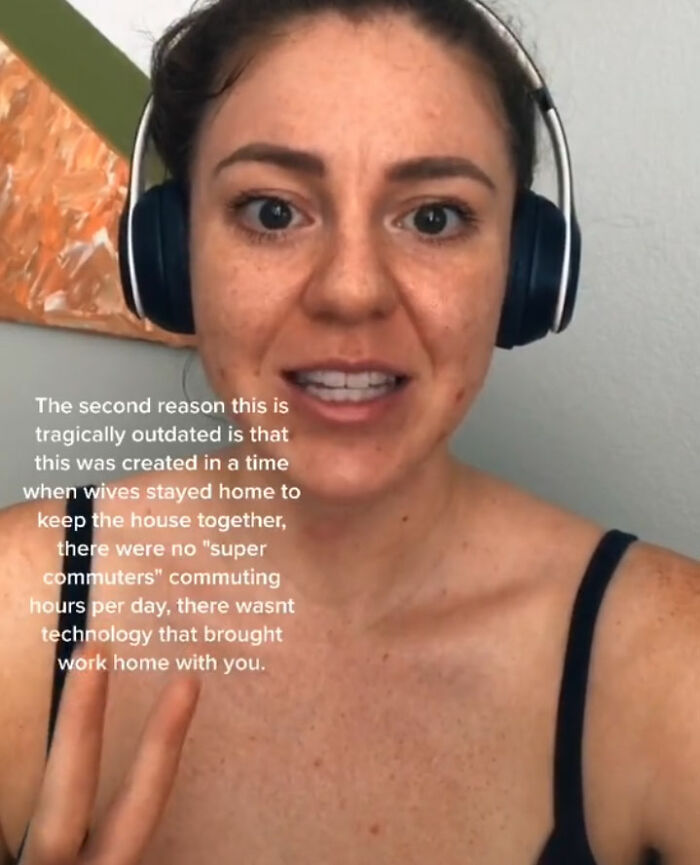
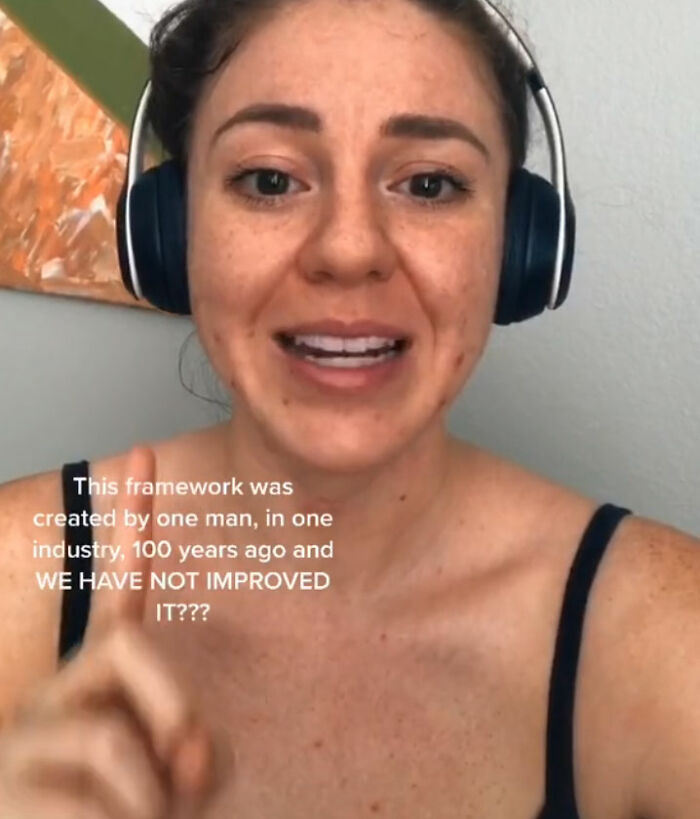
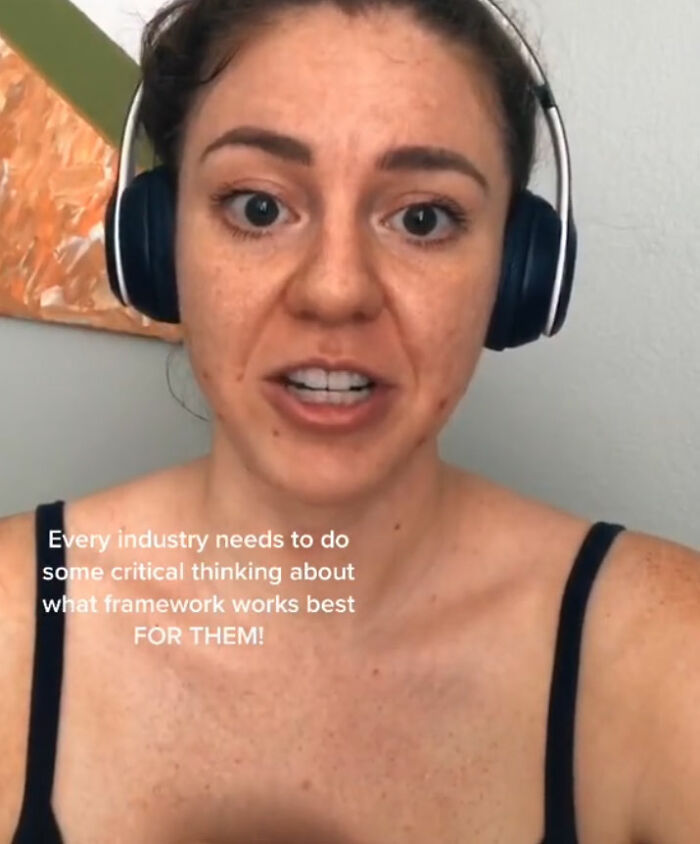
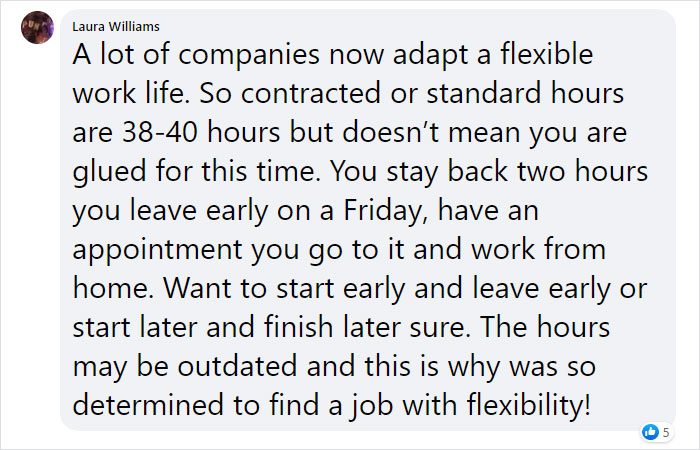

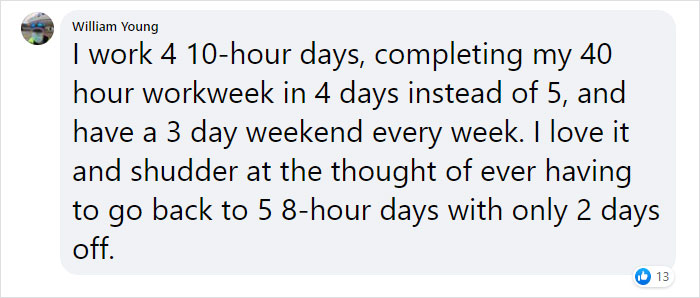
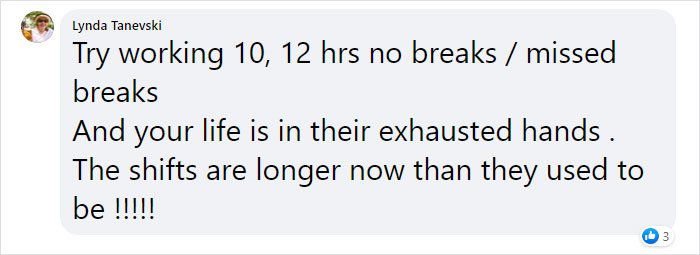

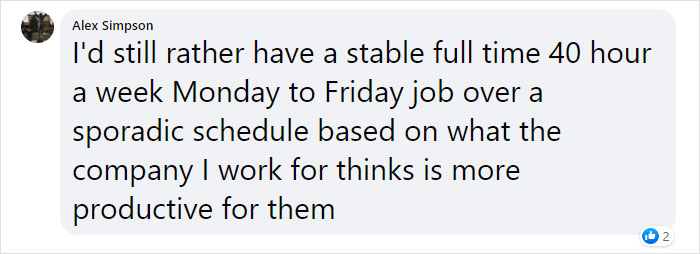












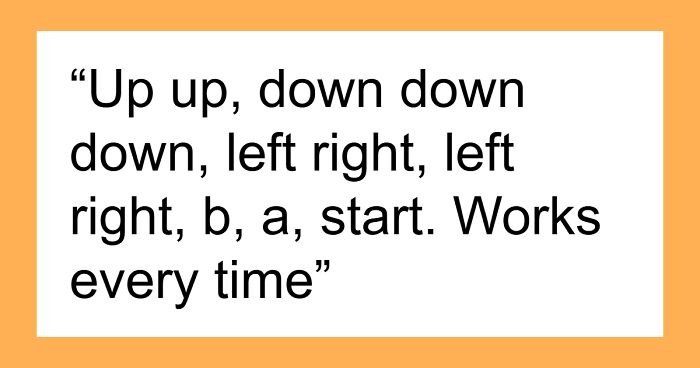

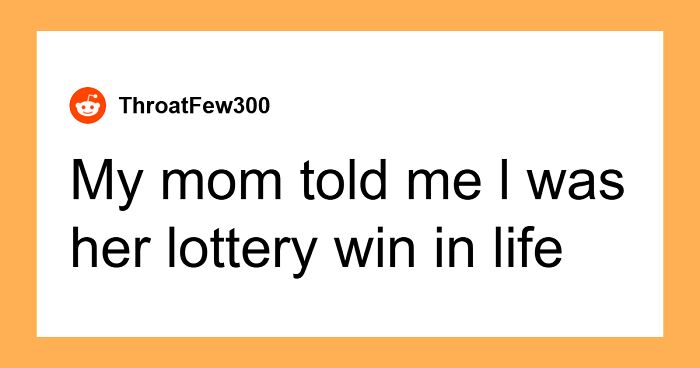


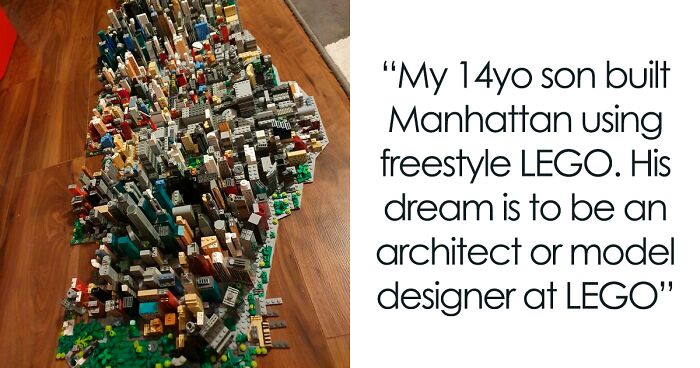










68
31